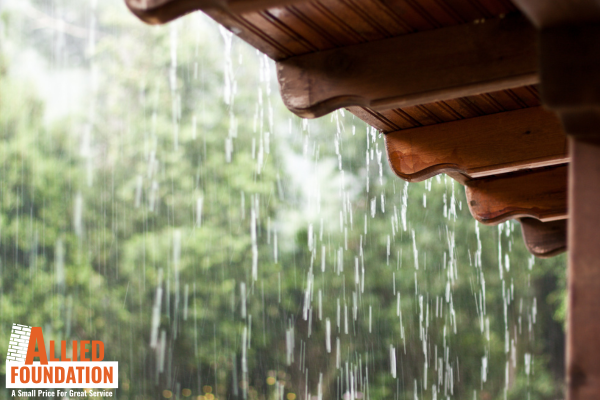Houston’s a city of contrasts – a vibrant melting pot with a booming economy, all nestled against the backdrop of unpredictable weather. While we embrace the charm and cultural diversity, one aspect of Houston life can wreak havoc on our homes: thetemperamental climate. Houston’s signature humidity and expansive clay soil create a perfect storm for foundation woes. But fear not, fellow Houstonians! This comprehensive guide will equip you to understand how Houston’s weather affects your foundation, identify warning signs, and navigate the repair process.
Understanding the Threats: Houston’s Recipe for Foundation Issues
Unlike some regions with consistent climates, Houston throws a combination of punches at your foundation. Here are the key culprits:
- Mercurial Temperatures: Houston swings from scorching summers exceeding 90°F to occasional freezing winters. These dramatic fluctuations cause concrete to expand and contract, putting stress on your foundation. Imagine your foundation as a concrete jigsaw puzzle – these temperature swings are constantly nudging the pieces out of place.
- Humidity Galore: Houston’s notorious humidity keeps the soil moist throughout the year. This constant moisture content acts like a sponge, causing the clay soil to expand. As the soil pushes outwards, it can exert immense pressure on your foundation walls.
- Heavy Rainfall: The city experiences frequent and sometimes intense downpours. While a good rain is refreshing, saturated soil around your foundation can lead to settling and movement. Think of heavy rain as adding extra weight to one side of your house – the foundation can struggle to support the uneven load. Also, the Greater Houston area is also prone to flooding, which is why many homes are now looking to have their homes elevated.
Warning Signs: Identifying Foundation Issues Before They Escalate
Early detection is crucial to prevent foundation problems from escalating into costly repairs. Here are some telltale signs to watch out for:
- Cracks: stair-stepping cracks in your foundation walls, floor slabs, or brick exterior can indicate settling or shifting. While a small crack may seem insignificant, it’s a potential entry point for moisture and a sign of underlying movement.
- Sticking Doors and Windows: Do your doors and windows seem misaligned or difficult to open and close? This could be a sign offoundation movement, causing the frames to become misaligned.
- Uneven Floors: Are your floors sloping or bowing? Uneven floors are a major red flag for foundation problems. Imagine a ball placed on a flat surface – if your foundation is uneven, the ball will roll toward the lower spots, indicating a tilt in the foundation itself.
- Drainage Issues: Poor drainage around your foundation can lead to moisture buildup and exacerbate foundation problems. Standing water near your foundation is a clear sign that water isn’t draining properly.
- Gaps Between Walls and Ceilings: Visible gaps between the wall and ceiling could indicate foundation settlement. As the foundation settles, it can pull away from the walls, creating these unwanted gaps.
Common Foundation Problems in Houston Homes
Knowing the specific types of foundation issues prevalent in Houston can help you identify potential problems in your home:
- Slab Settlement: Clay soil in Houston shrinks and expands with moisture changes. This can cause concrete slabs to crack and settle unevenly, a common problem in slab foundation homes. Imagine a large concrete slab resting on the soil – uneven moisture content can cause parts of the slab to sink lower than others.
- Pier and Beam Problems: Older homes with pier and beam foundations may experience issues like rotting beams, insufficient pier support, or brick veneer separation. Think of a house supported by posts – rotting beams weaken the support structure, insufficient piers can’t handle the weight, and brick veneer separation indicates movement between the brick exterior and the frame of the house.
- Differential Settlement: Uneven settling of the foundation can occur due to variations in soil composition or weight distribution across the house. An addition on one side of the house, for example, can put more weight on that section of the foundation, leading to uneven settling.
Taking Action: Repair Solutions for Your Houston Home
If you suspect foundation problems, don’t delay! Schedule an inspection by a qualified foundation repair professional, like Allied Foundation. We will assess the specific issue and recommend the most appropriate repair solution. Here are some common repair methods used in Houston:
- Slab Piers: For slab foundations, piers are driven under the foundation to lift and stabilize settled areas. Imagine adding new support posts beneath a sinking concrete slab.
- Underpinning: This involves excavating under the foundation and installing piers or braces to support the weight of the house. Think of adding a new foundation layer beneath the existing one for additional support.
- Pier and Beam Repair: This may involve repairing or replacing rotting beams, as well as leveling current beams or installing extra piers for support.
No matter what your Houston foundation needs, Allied Foundation can help.



